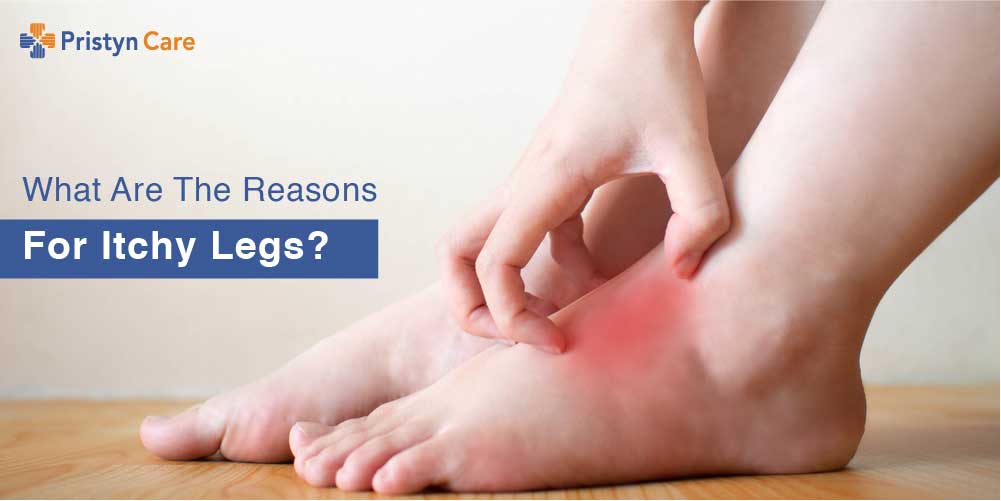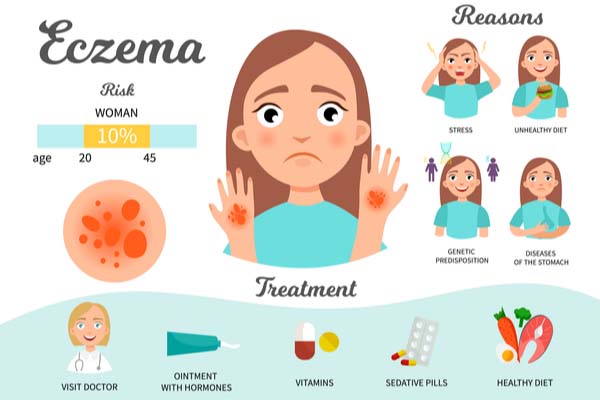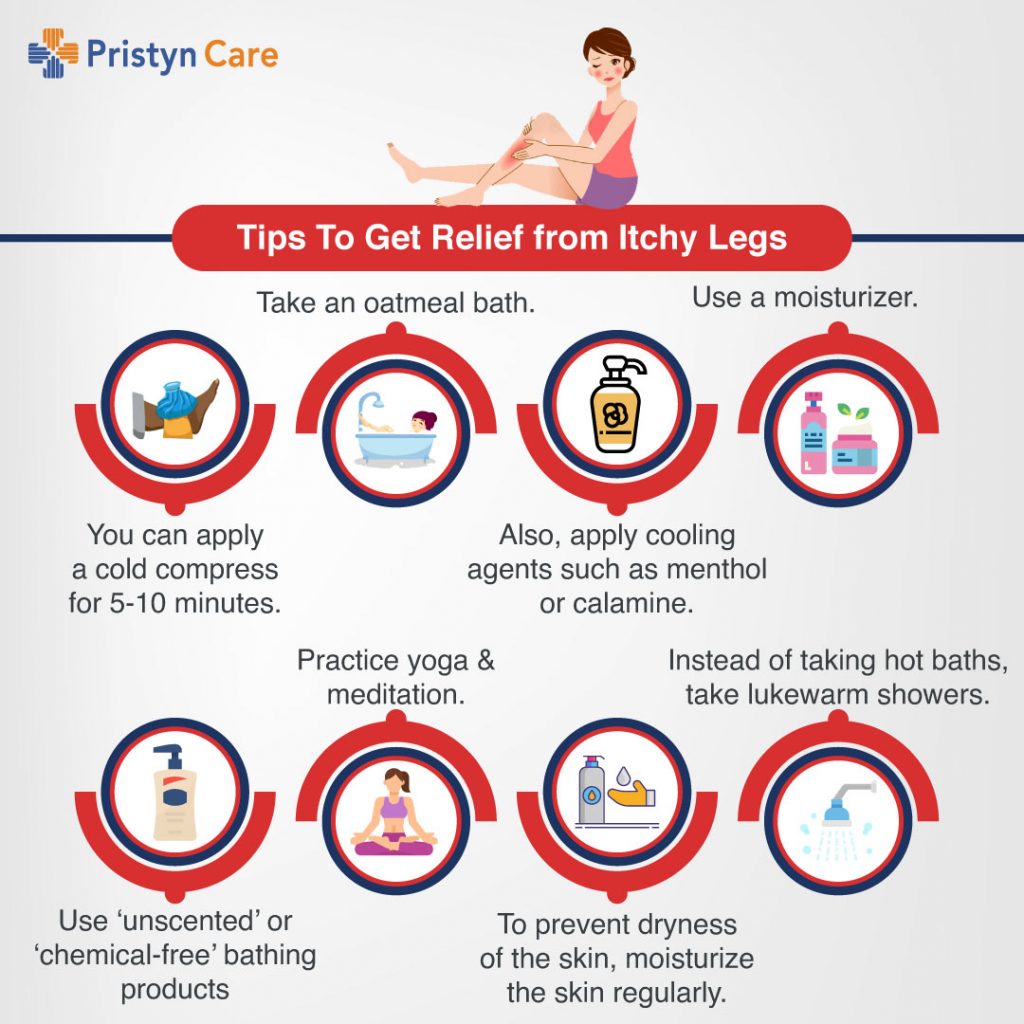
Often people visit a doctor with a spot on their hands or feet that causes extreme itchiness. They complain that sometimes the itching is so severe, especially in the middle of the night, that people are unable to sleep. Can you relate yourself to the above scenario? Then, read along as we explore the possible causes that can lead to itchiness, especially in the legs.
According to an article published by the ‘The Journal of Allergy and Clinical Immunology: In Practice”, itching without any rash can be due to-
- Systemic conditions- These are conditions that affect the entire body and not any particular organ or body part.
- Neurological conditions- These are defined as the reasons that affect the nervous system of a person.
- Psychiatric conditions- These entail the reasons that affect mental health. Some of them are depression, anxiety, etc.
Table of Contents
Possible reasons due to which the skin can itch are
Not maintaining proper hygiene
One of the major causes of itchiness in any part of the body is not washing regularly or maintaining proper hygiene. This leaves behind dirt, sweat, and dead skin cells in the body leading to a build-up of these that can make the legs itchy. It can aggravate due to heat or dryness in the air.
Eczema

Itching is a symptom that every person suffering from eczema has to deal with. Eczema is a common condition that can occur in any part of the body, including the legs. Eczema is a chronic condition in which excessive itching leads to scratching that leads to dry skin. These, in turn, lead to more itching.
Allergic contact dermatitis
This is a condition that develops when the skin comes in contact with an allergen that leads to skin inflammation, irritation, and itchiness. Some of the common substances that can lead to allergic contact dermatitis are-
- Plants
- Soaps, especially scented ones
- Cosmetics
- Fragrances
- Metals such as nickel or copper
- Shampoos
- Laundry detergents
- Fabric softeners
- Cement
Also Read: Tips To Prevent Dust Allergy
Xerosis
In simpler terms, xerosis is the dryness of the skin. This is a condition that is more common in older people as the skin loses moisture with age making it drier. In the initial stages, there might not be any rash but as soon as you start scratching the area, you can see red bumps or irritation from the scratching.
Varicose veins
In this vascular disease, blood pools in the veins of the legs that results in the bulging out of these veins. Varicose veins can cause itchiness in the legs due to a condition that is known as venous stasis dermatitis. As the pressure increases in the veins, some of the blood can leak into the skin. This can make the skin over the veins red and itchy. When this condition becomes severe, the skin turns red and scaly with intense itching. (Also Read: Do Stockings Really Help Prevent Varicose Veins? )
Diseases
Certain diseases can lead to excessive itching in the skin, which is also known as pruritus. Some of them are discussed below-
Diabetes
Diabetes is a medical condition in which the blood sugar level of a person is high. As the body is unable to metabolize glucose, blood circulation is also affected. Poor blood circulation causes itchiness in the legs. (Also Read: Fiber-rich diet Can Reduce Diabetes, High Blood Pressure Risk: A Study)
Kidney failure
Although it is a very uncommon cause that can lead to itching, people who are suffering from renal failure report this as a symptom. (Also read: Are you mistaking backache for kidney stones?)
Lymphomas
It is a type of blood cancer in which the white blood cells grow abnormally. There are over 60 types of lymphomas.
Hypothyroidism
People suffering from hypothyroidism often complain that they have itchy skin and even, chronic hives. Hives are red, itchy bumps that can appear and go.
Sjogren syndrome
In this syndrome, the body gets dry, especially the eyes and the mouth.
Insect bite
This is the most common reason for itchiness in any part of the body. Sometimes, it can lead to a lump which is also itchy. Although it gets cured on its own within a few days, a severe allergic reaction can cause difficulty in breathing, chest pain, cramps, nausea, etc.
Treatment for Itchiness in the legs
Dermatologists recommend following the below-mentioned tips to get relief from the itchy legs-

- You can apply a cold compress such as cold, wet cloth or ice pack over the area that itches tremendously for 5-10 minutes.
- If the itching is due to chickenpox, hives, allergic contact dermatitis or simply sunburn, then taking an oatmeal bath can be really soothing.
- Use a moisturizer that is free of additives, fragrances, and perfumes.
- You can also apply cooling agents such as menthol or calamine.
- Itchiness triggered by stress can be treated by practicing yoga and meditation.
- Instead of using scented bath products that can cause irritation, use ‘unscented’ or ‘chemical-free’ bathing products.
- To prevent dryness of the skin, moisturize the skin regularly.
- Instead of taking hot baths, take lukewarm showers.
Also Read:







